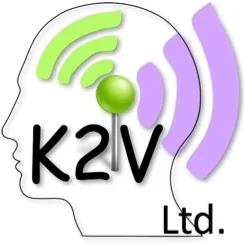Looking back over the last year, you could be forgiven for concluding that the world is in denial where knowledge is concerned. Piece by piece, K2V Ltd has been attempting to re-define what we mean by knowledge in the oil & gas sector and crucially, the role (if any) knowledge plays in shaping our future. When you join big data with digitisation and parse it with artificial intelligence (AI), you are left wondering “what role does knowledge play in all of this?". Most people think "augmentation" when combining weak AI with human thinking (the expression strong AI tends to be reserved for "what we can't do yet"). The truth is that whether machines or people make decisions in the future, what we do now will determine how your part in that future evolves. The increasing role played by machines in parsing, learning, interpreting, cleaning up and transforming digital data is just common sense but when it comes to recursive self-improvement, machines cannot converge on reality without human guidance or human acceptance. Augmentation is fundamentally a partnershipwhether supervised, semi-supervised or even unsupervised.
In March 2017, K2V Ltd launched an initiative to publish slightly provocative articles every 6 weeks to highlight knowledge and perceptions, bringing familiarity to the issues. In effect, keeping the conversation going by challenging perceptions and arming them at the same time. Click HERE and view the brief summaries of 2017 articles 1-8 inclusive.
A Model for the Partnership of the Future
Exploration for natural resources is an evidence-based science founded on data, which employs reductive reasoning to test the limits of our credulity. Machines and people can assimilate vast amounts of data but neither can effectively rationalise those data in the real world without some form of logical framework to guide them. Teachers with experience and knowledge do that – teachers who calibrate neural nets and keep the aperture wide on possibilities but who nonetheless risk imposing their dogma. AI is attractive because it is fast, thorough and naive, possessing none of the baggage that humans have collected through their cognitive bias. Unlike humans, AI doesn't need to explain how an accumulation came in to existence, it simply observes that the accumulation exists in calibrated data-rich areas. The rest is down to empirically supported trust, based on how large and representative the sample is.
Where there is high uncertainty, artificial intelligence runs the risk of being just artificial because without the guidance of a control framework (supervised dogma), AI is incapable of representing useful or high value uniqueness. AI lacks innovation or the capacity to surprise with new insights. In other words, AI has no imagination but paradoxically, that means as human control is reduced, potentially valuable unimagined outcomes will increase. As with computer generated art or music, the ultimate judgement on whether the unimagined outcomes are useful or valuable is a human definition since ‘usefulness to humans’ are the outcomes we seek.
In the end, it is still people who make decisions - not data or machines - people who understand value. If the decision makers trust hard evidence over perceptions, early gains will re-enforce AI initiatives at the expense of knowledge, particularly in data rich sectors. But it will inevitably be short-lived because where the partnership really needs to work is where there is high uncertainty - in frontier settings. AI is incapable of second-guessing human imagination in the real world but there is real value in unimagined outcomes (serendipity remains even today a much under-stated force in exploration). The uniqueness of both imagined and unimagined outcomes becomes a problem because they defy predictability, partly because we don't yet know what we don't know. And that is where the compromise journey begins; where we sacrifice the joy of learning for the sake of convergence. The value is in the partnership between human accountability to the real world, and AI speed, thoroughness and naivety in the abstracted world. The longer-term future for AI lies in establishing the right partnership now.
Is knowledge in decline? In the short-term perhaps but in the long-term, the appetite for knowledge and data will continue to increase in partnership. Machines have the capacity to generate multiple facsimiles of reality with no accountability but it takes people with vision and imagination to think outside the machine.

